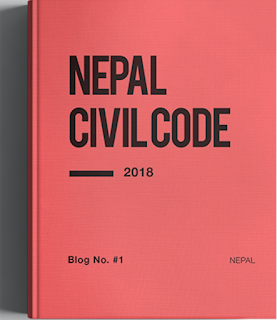Comments in the National Statistics Bill 2019 of Nepal
Through this blog, I have tried to examine the provisions contained in the New Statistics Bill which is currently in the Upper House of Nepal's Parliament.
Initial Impression
At present, Statistics Bill 1958 is prevalent in Nepal that underwent 8 amendments since its formulation. The last amendment was made in 2010. In this 10 years, the entire world including Nepal saw a tremendous change in the definition of statistics, data and governance. Specific to Nepal, the devolution of powers into federal, provincial and local governments has specific interests in terms of statistics production, custodian, publication and use.
Objectives that I think the new bill has envisioned achieving:
I saw from the Preamble that the Government of Nepal has realized that the objective widened from significant of statistics for national planning to the production, processing, storage, publication and distribution plus influence in policy making in all three tiers of governments. I find this a very progressive.
Other than stated as objectives, I see some values in the Bill. Some that I see are as follows:
- Eliminate redundancy in stats which is quite valid in the present context of Nepal where multitude of stakeholders have been collecting statistics.
- Maintain single source of truth in terms of statistics and become more cost and time effective.
- Helpful in standardizing data
- Data security which I believe is crucial need of the time
Some Problematic Provisions
Here, I have examined some of the provisions which I think are not at par with the evolving realization in the field of statistics and data governance.
- Section 7(2):
- A sub-clause of it provisions about permission and restriction to collect statistics. It states that, in academic or personal study, stats collected should not be published and depicted to have interpreted economic, social and cultural situation of Nepal. This is quite vague and seems to undermine the relevance of independent assessments to be conducted in relation to economic, social and cultural facts of Nepal.
- Section 7(7) :
- This section mandates using the statistics for the same purpose to what it was meant for. I think this section is quite problematic and can result into the similar type of confusion that RTI Act 2007 has regarding purpose. The confusion regarding the use of information sought by using Right to Information exists in terms of the purpose that was stated.
- Section 11:
- The section provides a duty of the statistics users to be cautions so as not to ignite social disharmony and peace arrangement. I am confused on how it will be measured and and determined the use of statistics led to disharmony and affected peace.
- Section 12:
- The section talks about the provisions where local and provincial governments can collect their statistics:
- It looks like the central government still has an interest to maintain its control over province and local level apparent from the provisions stated.
- I can see a restriction in publication of data without ‘permission’ of the designated agency.
- There is a provision which restricts in collecting data already collected by the Government of Nepal. This provision would require local governments and provincial governments to have high level expertise to distinguish which types of stats are collected and which are not. Besides local priorities might require some extension over a set of statistics.
- Section 21:
- Section 21 states about Punishment in relation to proven offense set forth in the Bill. Here are few observations:
- Section 21(2)(b): If any person FAILS or denies giving info, 20k fine or 6 months of imprisonment or both. This means if any family member denies providing information as sought, can result into having have committed the offense.
- Section 21(2)(c): Nrs 40000 fine or 1 year in imprisonment or both collected stats without permission.
- Section 21(3)- The provision talks about punishing the chief official of the organization. I fear if this provision promotes the culture of inactivity so as to avoid accountability. If a job is not done, it's fine. But if it were done, it is going to be a problem because there would be questions arising.
Overall impression
Here are my overall impression over the proposed Statistics Bill:
- Open data as such still not realized for its elements, access, privacy and priopritery
- Machine readable data is a progressive realization however, from National Statistics MIS and interoperable data systems in between local govt and provincial govts
- Centre seems to have not internalized the significance of exclusive right of local level to collect local stats
- Looks like the centre still has an interest to maintain its control over province and local level
- restriction in publication of data without ‘permission’
- restriction in collecting data already collected by government of nepal: local governments and provincial governments would require high level expertise to distinguish which types of stats are collected and which are not; besides local priorities might require some extension over a set of statistics.
- National Statistics council comprising of senior-most officials of planning agencies, ministries etc, but very weird why National Information Commission and the ministry of communication and information technology (MoCIT) is not involved at all.

Comments
Post a Comment